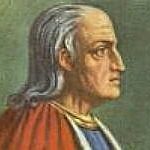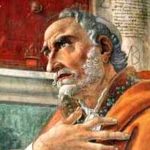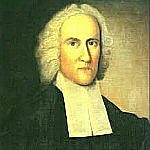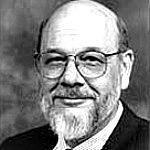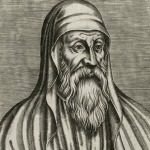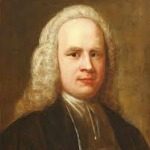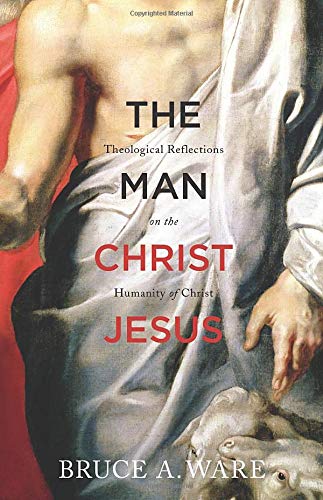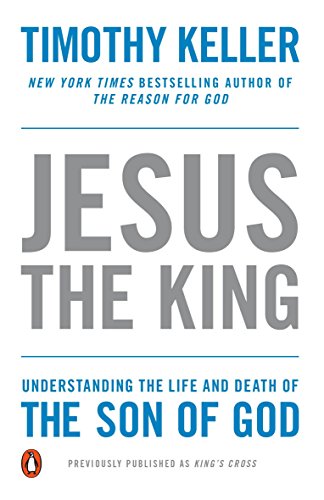Quotes about Jesus_Christ-Hypostatic_Union
It would not have been right for the restoration of human nature to be left undone, and…it could not have been done unless man paid what was owing to God for sin. But the debt was so great that, while man alone owed it, only God could pay it, so that the same person must be both man and God. Thus it was necessary for God to take manhood into the unity of His Person, so that he who in his own nature ought to pay and could not should be in a person who could… The life of this Man was so sublime, so precious, that it can suffice to pay what is owing for the sins of the whole world, and infinitely more.
And if man cannot be admitted unless the aforesaid satisfaction for sin be first made, then necessarily One must make it who is both God and man.
Man was added to Him, God not lost to Him; He emptied Himself not by losing what He was, but by taking to Him what He was not.
The word of the Father by whom all time was created was made flesh and born in time for us. He without whose divine permission no day completes its course, wished to have one of those days for His human birth. In the bosom of His Father He existed before all the cycles of the ages. Born of an earthly mother, He entered on the course of the years on that very day. The maker of man became man that He ruler of the stars might be nourished at the breast, that He the bread might be hungry, that He the fountain might thirst, that He the light might sleep, that He the way might be wearied in the journey, that He the truth might be accused by false witnesses, that He the judge of the living and the dead might be brought to trial by a mortal judge, that He justice itself might be condemned by the unjust, that He discipline personified might be scourged with a whip, that He the foundation might be suspended on a cross, that He courage incarnate might be weak, and He security itself might be wounded, and He life itself might die.
Jesus Christ, the condescension of divinity, and the exaltation of humanity.
If we had been told that God was coming into a man’s life…that must be something very terrible and awful. That certainly must rend and tear the life to which God comes. At least, it will separate it and make it unnatural and strange. God fills a bush with His glory, and it burns. God enters into the great mountain, and it rocks with an earthquake. When He comes to occupy a man, He must distort the humanity He occupies into some inhuman shape.
Instead of that, this new life into which God comes seems to be the most quietly, naturally human life that was ever seen upon the earth. It glides into its place like sunlight. It seems to make it evident that God and man are essentially so near together that the meeting of their natures in the life of a God-man is not strange. So always does Christ deal with His own nature, accepting His divinity as you and I accept our humanity, and letting it shine out through the envelope with which it has most subtly and mysteriously mingled, as the soul is mingled with and shines out through the body.
And we know how necessary it was that Christ should come forth as God and man; for salvation cannot be expected in any other way than from God; and Christ must confer salvation on us, and not only be its minister. And then, as He is God, He justifies us, regenerates us, illuminates us into a hope of eternal life; to conquer sin and death is doubtless what only can be effected by divine power. Hence Christ, except He was God, could not have performed what we had to expect from Him. It was also necessary that He should become man, that he might unite us to Himself; for we have no access to God, except we become the friends of Christ; and how can we be so made, except by a brotherly union?
As to His deity Christ had no mother, and as to His humanity He had no father.
An admirable conjunction of diverse excellencies.
Jesus is presented as fully human and thus distinct from the Father. But He is also fully divine and thus a unity with the Father.
His Words Affirm His Absoluteness by Ajith Fernando taken from The Supremacy of Christ by Ajith Fernando, copyright 1995, Crossway Books, a division of Good News Publishers, Wheaton Illinois 60187, www.crosswaybooks.org, p. 38.
Biblical significance of the blood of Jesus: 1. Redemption. a. Acts 20:28 – “church of God purchased with His own blood.” b. Eph. 1:7 – “we have redemption through His blood.” c. 1 Pet. 1:9 – “redeemed…with precious blood.” d. Rev. 5:9 – “purchased for God with His blood, men from every tribe.” 2. Propitiation. a. Rom. 3:25 – “God displayed Jesus as a propitiation in His blood.” 3. Cleansing. a. Heb. 9:14 – “blood of Christ…will cleanse your conscience.” b. 1 John 1:7 – “blood of Jesus cleanses us from all sin.” c. Rev. 7:14 – “washed their robes in the blood of the Lamb.” 4. Forgiveness. a. Eph. 1:7 – “redemption through His blood, the forgiveness of our trespasses.” b. Heb. 9:22 – “without shedding of blood there is no forgiveness.” c. Rev. 1:5 – “released us from our sins by His blood.” 5. Access to God. a. Eph. 2:13 – “brought near to God by the blood of Christ.” b. Heb. 10:19 – “confidence to enter Holy Place by blood of Jesus.” 6. Reconciliation. a. Col. 1:20 – “reconciled, made pace through the blood of the cross.” 7. Justification. a. Rom. 5:9 – “having been justified by his blood.” 8. Sanctification. a. Heb. 13:12 – “that He might sanctify the people through His blood.” 9. Conquest of evil. a. Rev. 12:11 – “overcame…because of the blood of the Lamb.” 10. Basis of new covenant. a. Heb. 13:20 – “through the blood of the eternal covenant.” 11. Lord’s Supper. a. Matt. 26:28 – “This is the new covenant in My blood.” b. I Cor. 10:16 – “the cup of blessing…a sharing in the blood of Christ.”
It is by far the most amazing miracle in the whole Bible – far more amazing than the resurrection and more amazing than the creation of the universe. The fact that the infinite, omnipotent, eternal Son of God could become man and join Himself to a human nature forever, so that infinite God became one person with finite man, will remain for eternity the most profound miracle and the most profound mystery in all the universe.
Systematic Theology, Zondervan, 1994, p. 563. Used by Permission. Get this book!
At the heart of Christian faith is the good news of redemption for sin through one who would stand in the sinner’s place bearing his guilt and satisfying the debt of God’s eternal just wrath. Only God could do this; the great Judge of mankind was judged for us. However, only a human being should stand in the place of humans; yet he had to be perfect himself. Who could do that? One who is God and yet, at the same time, perfect man, the Lord Jesus Christ.
The wrong that man had done to the Divine Majesty, should be expiated by none but man, and could be by none but God.
A Puritan Golden Treasury, compiled by I.D.E. Thomas, by permission of Banner of Truth, Carlisle, PA. 2000, p. 30
The baby Mary carried was not a Caesar, a man who would become a god, but a far greater wonder – the true God who had become a man!
The Birth of Christ by Kent Hughes taken from Luke by Kent Hughes – Volume 1, copyright 1998, Crossway Books, a division of Good News Publishers, Wheaton Illinois 60187, www.crosswaybooks.org. Page 83.
Nowhere does the Bible ever declare that Jesus’ deity makes Him something more than a man or something other than a human. Scripture never allows the divine nature of Christ to overshadow or diminish His human nature
Though it was His human nature that suffered the pains of physical death, it was His divine nature that gave His suffering its infinite value and dignity, so making it effective as a ransom for many.
Forsaken by Mark Dever and Michael Lawrence taken from It Is Well, by Mark Dever and Michael Lawrence, copyright 2010, Crossway Books, a division of Good News Publishers, Wheaton Illinois 60187, www.crosswaybooks.org, page 85.
“Hypostatic union” sounds fancy in English, but it’s actually a simple term. Hypostatic means personal. The hypostatic union is the personal union of Jesus’s two natures. Jesus has two complete natures: one fully human and one fully divine. What the doctrine of the hypostatic union teaches is that these two natures are united in one person in the God-man. Jesus is not two persons. He is one person. The hypostatic union is the joining (mysterious though it be) of the divine and the human in the one person of Jesus.
What Is the Hypostatic Union? Copyright December 19, 2007, Used by permission. www.DesiringGod.org.
It is immeasurably sweet, and awe-inspiring, to know that Jesus’s two natures are perfectly united in His one person. Jesus is not divided. He is not two people. He is one person. As the Chalcedonian Creed states, His two natures are without confusion, without change, without division, and without separation. Jesus is one.
What Is the Hypostatic Union? Copyright December 19, 2007, Used by permission. www.DesiringGod.org.
Although Christ was God, He took flesh; and having been made man, He remained what He was, God.
To emphasize the deity of Christ in no way diminishes His humanity, and to highlight His humanity in no way detracts from His deity. The properties of each nature retain their own integrity even in their union in the singular person of the Son (Luke Stamps).
The Humanity of Christ, Used by Permission from the Gospel Coalition. www.thegospelcoalition.org
Without ceasing to be what He was, He became what He was not (Cyril of Alexandria).
The New Testament makes it clear that Jesus never sinned (Heb 4:15; 9:14; 1 Pet 1:19). And although theologians have debated the question of Christ’s impeccability—whether or not he could have sinned—it seems that the answer most consistent with the fullness of the New Testament revelation is that Christ, in fact, could not have sinned. Because the person of Christ is divine, and a divine person, being necessarily good, cannot sin, it seems best to argue for Christ’s impeccability. But this understanding of Christ’s inability to sin need not detract from the biblical teaching that Christ, as a human, was indeed tempted (Matt 4:1–11) and even “suffered” in his temptations (Heb 2:18). There may be better and worse ways of reconciling these two apparently contradictory aspects of the New Testament teaching, but however we attempt to reconcile them, it seems best to hold them both, without seeking to alleviate the tension by diminishing either (Luke Stamps).
Adapted from The Humanity of Christ, Used by Permission from the Gospel Coalition. www.thegospelcoalition.org
We should settle it firmly in our minds, that our Savior is perfect man as well as perfect God, and perfect God as well as perfect man. If we once lose sight of this great foundation truth, we may run into fearful heresies. The name Emmanuel takes in the whole mystery. Jesus is "God with us." He had a nature like our own in all things, sin only excepted. But though Jesus was "with us" in human flesh and blood, He was at the same time very God.
Touching His human nature, Jesus is no longer present with us. Touching his Divine nature, He is never absent from us.
The Purpose of God, An Exposition of Ephesians, Christian Focus Publications, 1994, p. 22.
He is not humanity deified. He is not Godhead humanized. He is God. He is man. He is all that God is, and all that man is as God created Him.
Emmanuel. God with us. He who resided in Heaven, co-equal and co-eternal with the Father and the Spirit, willingly descended into our world. He breathed our air, felt our pain, knew our sorrows, and died for our sins. He didn’t come to frighten us, but to show us the way to warmth and safety.
He is the King of kings, the radiance of His glory, the Lord of the spaceless, fabulous, infinite universe, omniscient, omnipotent, omnipresent, unspeakable holy, dwelling in light, unapproachable, changeless … and yet He condescended to be enclosed in lowly human flesh, to be born a despised Judean, in a filthy stable, in the womb of a simple Israeli woman and without fanfare or pomp.
Our Savior must be fully man in order to take the place of men and die in their stead, and He must be fully God in order for the value of His sacrificial payment to satisfy the demands of our infinitely holy God. Man He must be, but a mere man simply could not make this infinite payment for sin.
Jesus was God and man in one person, that God and man might be happy together again.
